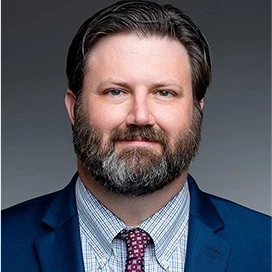America’s Shrinking Police Forces Could Endanger Public Safety–Part I
Add bookmarkEditor's Note
Few readers will deny there is no longer the slightest doubt the spreading contagion from today's "war on cops" threatens the very foundations of a functioning civil society.
Good management of government institutions at the local, state and federal levels in many aspects can be thought of as an alternative to tyranny (i.e., lawlessness).
There is no point in blaming this or that politician for creating a situation that–if allowed to continue–threatens middle-class life, middle-class safety and fuels increased corrosion and spreading decay of domestic society–namely, the protection of the poor and what is now termed "the welfare underclass."
We are all to blame for allowing this to happen. We can no longer vote for people with sparkling/charismatic personalities who, in the final analysis, constantly produce non-results. We need competent government/political leadership.
Almost daily we read about the impact of the sequential disabling of effective policing in areas that need it the most.
This is a Two-Part Article
Part I briefly outlines the root causes of inviting rapidly increasing lawlessness via policy decisions at state and local levels.
Part II presents alarming statistics about the downturn in police recruitment and the accelerating rate of early (and very experienced) police officer retirements. Agencies participating in the survey reported that there has been an average 63% decrease in applying to become a police officer.
We are republishing with permission an ABC News article (that constitutes the bulk of Part II) that has received much-attention and recognition for clear-eyed, factual journalism.
Indeed, in the very near-future, we also plan to do an article on what kind of management skills political leaders at the local, state and federal level really need to get measurable, concrete results.
Introduction
Lost on many today is the derivative of the term "cops."
A 19th century acronym for Citizens On Patrol, it was originally intended as shorthand for ensuring both the public and the police remembered and understood officers of the law were in fact "citizens" of the community, tasked with the massive responsibilities of protecting the rest of the citizens and taking enforcement actions to ensure law and order was sustained in our democratic republic.
"Cops" were your neighbors, friends, parents of your classmates and sat in the pew next to you at Sunday mass.
Those called to become "cops" were mostly lower-middle class, second generation immigrants who had a sense of service and duty to community.
Today, the term is often thrown out as derogatory by the media and anti-police activists, and even police officers themselves resent being called "cops."
To Mistake Incidents For Trends Creates A Distorted Reality
Many journalists misinterpret incidents as trends. Change in a few visible things is rhetorically magnified into the appearance of massive transformations in all things.
As is well documented, the overwhelmingly vast majority of police officers handle their duties with professionalism and dignity, respectfully and honorably investigating crime, assisting those in need and performing many varied and difficult tasks in high stress situations on a daily basis.
The few instances of poor behavior by officers, or mistakes made in extreme circumstances, in modern day YouTube culture, has taken the view of police in our country down a dark rabbit hole.
“Culture Eats Strategy & {Good Intentions} For Lunch”
Many would argue exposing poor actions or decisions can only improve the institution of policing, and serves as a reminder how important oversight, training and accountability are to ensuring the public trust in the police.
While all valid and worthy points, the counterpoint to the modern day "war on cops" is the slow, methodical deterioration of the basic foundation of American police culture.
Heather MacDonald in her highly praised, meticulously researched book War on Cops provides actual details of exactly what happened versus what was reported by the news media related to a wide range of police encounters.
MacDonald brilliantly shows how the use of statistical trickery in writing false but attention-grabbing headlines significantly contributes to civil unrest and lawlessness.
Bottom line: Officers are now viewed more negatively than ever by society, and the pool of eligible and qualified candidates is shrinking at a dangerously high rate.
A Future That Has Already Happened?
Police Departments across the country are reporting staffing shortages, the number of applicants is shrinking, while at the same time the relaxing of qualifications for employment is bringing more and more individuals into law
enforcement who may not have the character or personality traits necessary to be good peace keepers, problem solvers, investigators or community leaders.
Seen by some as nepotism and cronyism, the hiring of police officers’ kids to become "cops" has traditionally served to help continue long standing traditions and promote the positive values of police culture.
Today, many officers are discouraging their children from becoming police officers, while many in society now view family ties to policing as a negative strike in a candidate.
More and more candidates are coming into the profession for the wrong reasons, and many are coming with the wrong approach to "protect and serve."
For example, some are just looking for the benefits and the 20 year retirement; others view the job simply as a "first responder" and don't embrace proactive patrol methods; still others are reluctant to get involved with the public, out of fear of being the next YouTube sensation; and still others expect promotions and special assignments without putting in the work or time to earn them.
The liabilities and risks in policing are ever-expanding, and officers are often more reticent in their duties than ever before.
Law enforcement leaders find it increasingly difficult to balance “keeping the peace” and building community relationships.
What History Tells Us
Politicians are quick to use anti-police rhetoric. The investment in the community by officers is waning. Trust in officers is waning. Esprit de corps and teamwork among officers is waning.
Most of us–whether we’ve rendered it explicit to ourselves or not–now realize we must replace inertia and its momentum by new energy and new direction.
As responsible citizens, we must do everything in our power to intelligently and respectfully reverse today’s anti-police rhetoric.
We truly believe the majority of our readership understands the future consequences of many of today’s ill-informed, irresponsible, politically motivated anti-law enforcement decisions at the local and state levels.
In Part II we present readers with the true statistics of what’s happening and what’s apt to happen with respect to attracting and keeping high quality police officers and support staff.
Every organization is a human organization, made or broken by the quality of its people.
If we place ill-conceived restraints and limitations that make police officers vulnerable, impede their full effectiveness, and hold down their results, we must not, then, mistake the mirror for the window.
Yesterday’s world order is going fast, while tomorrow’s world order is now beginning to emerge.
Said Peter F. Drucker: “We are not in fact facing the ‘new world order’ today’s politicians so constantly invoke… Rather, we are facing a new world disorder–no one can know for how long…”































